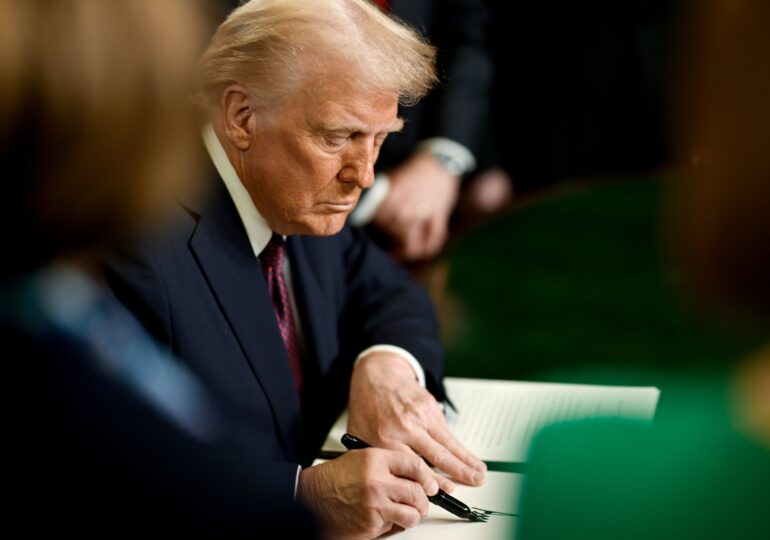On Monday, American President Donald Trump signed an executive order extending until August 1 the date when the so-called „reciprocal” tariffs will come into effect.
The previous deadline was July 9, Reuters reports.
"Based on additional information and recommendations from various senior officials, including information on the status of discussions with trading partners, I have determined that it is necessary and appropriate to extend the suspension made by Executive Order 14266 until August 1, 2025, at 12:01 a.m., Eastern Daylight Time," the document signed by Donald Trump states.
On Monday, American President Donald Trump began informing trading partners - from powerful suppliers like Japan and South Korea to minor players - that significantly higher American tariffs will start on August 1, marking a new phase in the trade war he launched earlier this year.
Letters of notification sent to 14 countries so far, including smaller American exporters like Serbia, Thailand, and Tunisia, suggest additional negotiation opportunities, while also warning that any retaliatory measures will be met with a similar response.
The higher tariffs, levied on American importers of foreign goods, will take effect on August 1 and will not interfere with previously announced sectoral tariffs, such as those for automobiles, steel, and aluminum.
This means, for example, that tariffs for Japanese vehicles will remain at 25%, rather than the existing 25% tariff for the auto sector increasing to 50% by adding the new reciprocal rate, as has happened with some of Trump's tariffs.
EU has not received a notification letter. What does this mean?
Therefore, the US President has started informing a series of trading partners through notification letters about the significant tariff increase on products they sell in the United States, starting August 1.
However, the European Union will not receive a letter from the United States setting higher tariffs, sources from the EU familiar with the matter told Reuters on Monday, tracking possible exemptions from the US's basic 10% duty.
- American tariffs, between improvisation and confusion - contradictory messages from Trump and the Commerce Secretary
- EU divided between quick concessions and tough resistance in negotiations with the US. Time is running out, and the stakes are high
Some EU sources stated that the bloc is close to an agreement with the Trump administration.
This agreement could include limited concessions on the US's basic 10% tariffs on aircraft and parts, some medical equipment, and spirits, three sources familiar with the situation said on Monday.
Two sources further stated that the EU is considering an agreement that would allow EU auto manufacturers producing and exporting cars from the US to import more vehicles from the EU at tariffs below the current 25% level. Such an agreement would benefit German car manufacturers with large factories in the US.
The European Commission, aiming for a balanced and broader trade agreement with the United States, informed EU representatives on Monday evening that EU countries are faced with a choice between accepting an unbalanced agreement or even greater uncertainty.
The Commission also stated that there are no guarantees that the Trump administration will not impose additional tariffs or request further concessions.
Currently, the EU is dealing with 50% tariffs imposed by the US on steel and aluminum exports, 25% on automobiles and auto parts, and 10% on most other products. The US is also considering additional tariffs on pharmaceuticals and semiconductors.
The EU still aims to reach a trade agreement, after European Commission President Ursula von der Leyen and Trump had "a good exchange of views," a Commission spokesperson said.
The EU has been divided between pushing for a quick and easy trade deal or leveraging its economic influence to negotiate a better outcome.

